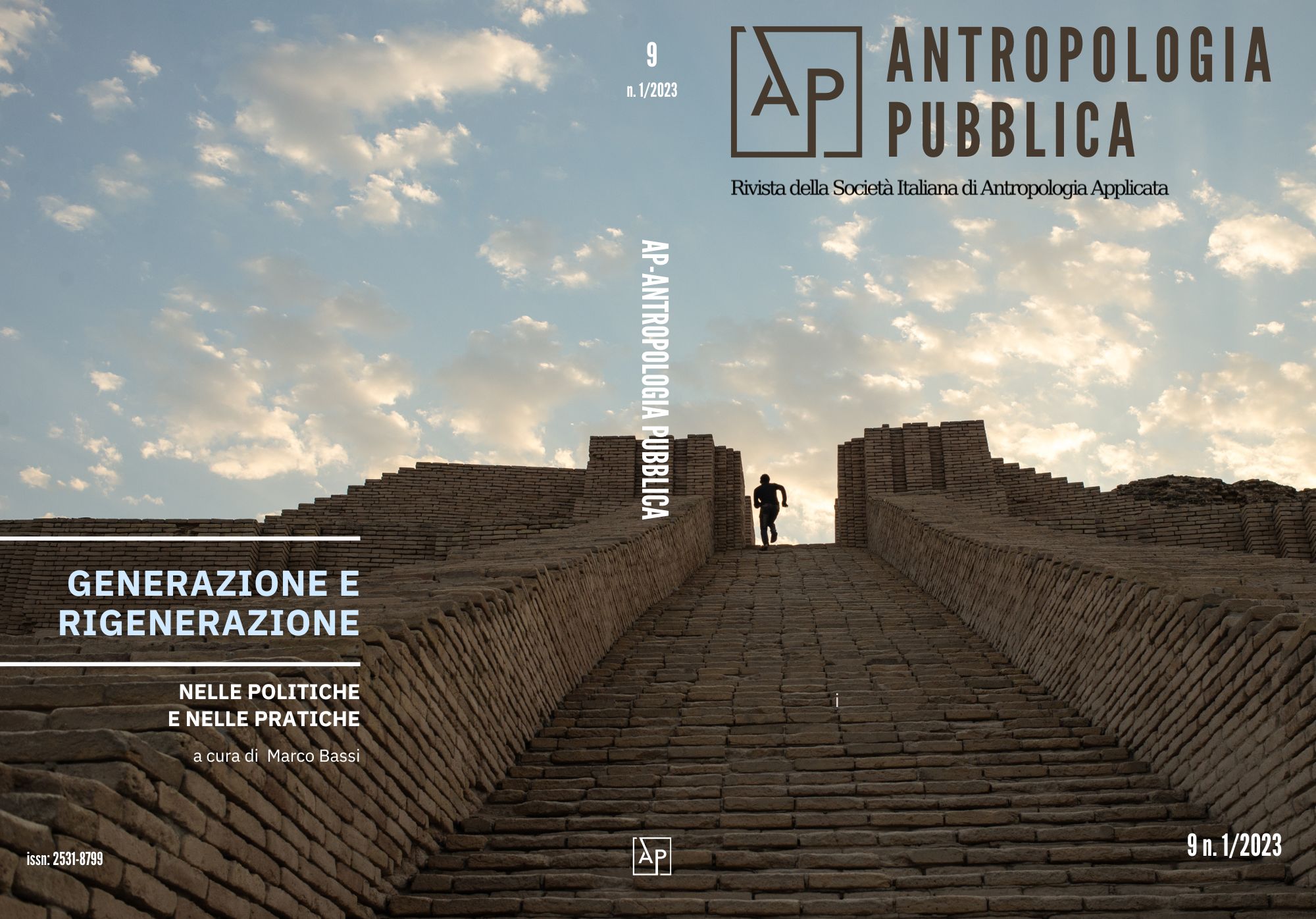Regeneration, Restoration and Return of Forces and Materials in Candomblé
DOI:
https://doi.org/10.1473/anpub.v9i1.298Parole chiave:
Regeneration; Life cycle; Candomblé; African-Derived Religions. Introduction «Abstract
In this paper I explore how a principle of regeneration, restoration and return sustains Candomblé’s worlding, mode of existence, ritual practices and ways of coping with crises. Candomblé’s ontology relies on a common origin and unity of substance and essence among all beings, from which existence descends, an all-encompassing power, called àṣẹ, whose movement, transition and circulation make life possible. The àṣẹ can flow and be transmitted and accumulated, but it is also subject to a process of degradation. Thus, rituals aim to restore the àṣẹ in people, objects and places, and produce flows of àṣẹ in the Cosmos and in society in order to ensure states of (always precarious) equilibrium. Some natural elements and foods especially bring about the life force of transformation and regeneration, and can renew the relationships of humans with the ancestors and the òrìṣà. Different òrìṣà and spiritual beings bring the life force, express themselves in their symbols and mythical deeds, and hold sway on activities implying a regenerative and transformative principle. Celebrations in the liturgical calendar, especially the Waters of Òṣálá, which opens the annual celebrations with the purification force of water, and the Olugbajẹ, a great healing banket devoted to Ọbalúaié, constitute re-enactments and actualizations of myths and acts of purification, life regeneration and restoration of energies.



